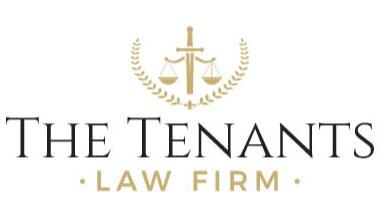What Rights Do Tenants Have in Regards to Unit Heating?
When you sign a contract for a place of residence, most states, including California, require landlords to put forth and maintain habitable living conditions. If you feel that your apartment is not adequately heated, here are some ways that you can address and remedy this problem.
Search for your area’s Heating Ordinance
To begin, search “heating ordinance” and your state to get an indication of what temperature landlords are legally required to keep apartments within your state. Title 25 of the California Health and Safety Code, for instance, mandates heating facilities capable of maintaining a minimum room temperature of 70 degrees Fahrenheit, and under California Civil Code 1941.1, a building that does not have adequate heating facilities is considered unlivable and substandard. Do not wait until the heating becomes an emergency — be aware of how your building’s heating system responds on semi-cold days, so you can be proactive about getting it fixed before wintertime.
How should you contact your landlord regarding unit heating?
If you are having heating troubles, contact your landlord first. If there is no action taken, write them an amicable notice explaining the problem, and include days and times when you will be available to let the repair person into the building. You can write to them via letter, email, or text, as long as there is a record of this interaction. During this process, make a copy of the written notice and keep it for yourself, also keep any other documentation, such as invoices, work orders, and correspondence with the landlord.
In California, if the landlord does not take proper action to repair the heating within 30 days of being notified, tenants can make this repair themselves per the California Civil Code 1942 “repair and deduct” rule. This rule allows tenants to make the repair themselves, and then deduct that cost from one month’s rent. Important: Repair and deduct can only be used two times per year and it cannot cost more than one month’s rent.
If the landlord has not helped after an appropriate length of time, most states will allow tenants to break their leases and move out, without 30 days’ notice, provided they have a record of their correspondence with the landlord, and the landlord’s lack of response, documented in writing.
What does Los Angeles law say about unit heating?
In addition to the state specified mandates in regards to heating, Los Angeles municipal code section 91.8111 on residential heating includes provisions that further protect tenants’ rights to adequate heating in LA. Los Angeles Municipal Codes 91.8111.1 and 91.8111.2 require landlords to maintain 70 degrees Fahrenheit and control the rooms to this temperature if the tenants are not able to activate the heating themselves.
Furthermore, although tenants must allow the appropriate amount of time to pass before the landlord is required to respond to their heating repairs query, this process is expedited in the winter because the LA County Department of Consumer and Business Affairs considers access to heating in the winter to be an “urgent” situation that needs immediate resolution.
What should you do if your apartment becomes too cold to live in?
Knowing when you can sue for your living conditions is complicated to navigate, and contacting experienced attorneys is crucial. Tenants Law Firm is here to help. Our team specializes in these cases to protect you against personal injuries sustained on others’ property. If you think you are entitled to a premises liability lawsuit, contact us by calling (310) 432-3200 or by using this form.

